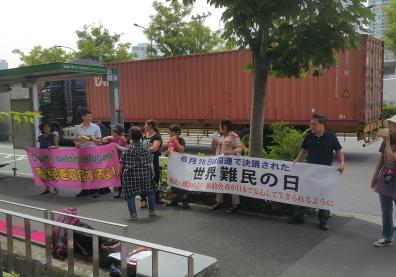Asylum seekers in Japan: policy, life experiences and cause building

Chair : Hélène Le Bail, chargée de recherche au CNRS, CERI Sciences Po Paris, fellow IC Migrations
Discutant : Stefan Le Courant, chargé de recherche au CNRS, Centre d'étude des mouvements sociaux, EHESS, fellow IC Migrations
Yusuf Avcı (assistant professor in the Department of Asian Studies at SSUA, Türkiye)
Title: Navigating Change and Continuity: Life as an Asylum Seeker in Japan
Abstract: Japan's asylum policy has undergone considerable changes in the last decade, reflecting negotiations and conflicts between asylum seekers, government agencies, and national and international organisations. This seminar examines the experiences of asylum seekers in Japan, focusing on the dynamics of change and continuity in their lives. By exploring the legal, social, and economic challenges they face, this study highlights the resilience and adaptability of these individuals amidst ongoing policy changes, emphasising their agency. By contrasting past and current experiences, the seminar aims to shed light on how Japan's evolving immigration landscape affects the lives of asylum seekers.
Yusuke Kunitomo (PhD student in the French Research Institute on East Asia (IFRAE)/the Institut national des langues et civilisations orientales (INALCO)
Title: Building the cause of asylum seekers in Japan: commitment of lawyers and civil associations actors
Abstract: Asylum seekers, who have very little chance of obtaining asylum in Japan, encounter social constraints: the allocation of allowances to asylum seekers is selective; the right to work and access to health insurance is not guaranteed for all asylum seekers; rejected asylum seekers risk being detained in an administrative detention center for an undetermined period. Against this administrative power, lawyers and associative actors try to bring about political change by two means: lawyers resort to justice to repair the damage suffered by asylum seekers or rejected asylum seekers; associative actors organize mobilization actions against immigration policy on the public stage. My presentation offers an analysis of the process of building the cause of asylum seekers in Japan.
Seminar coordinator: Hui-yeon Kim
Organization team: Hélène Le Bail, Yusuke Kunitomo, Oumrati Mohamed, Aki Yoshida, Hui-yeon Kim.